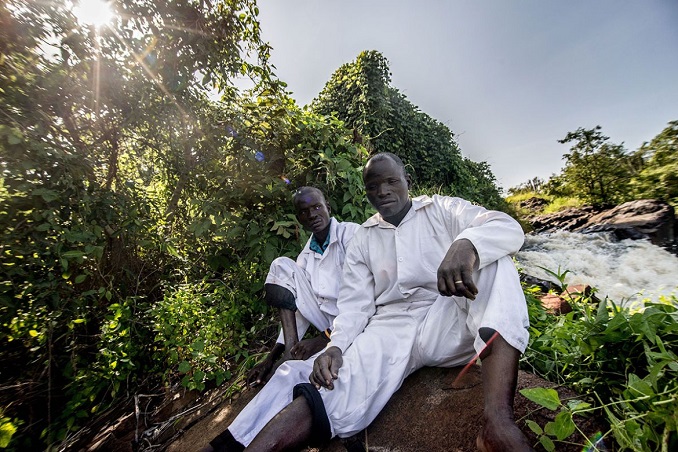Uganda – Jessica Ata hasn’t visited the River Aswa since being diagnosed with river blindness in 2014. Onchocerciasis, which is transmitted by the blackfly, affected 1.5 million individuals in Uganda at the time. The vector thrives along water rapids, such as this one, which runs through several areas.The return of rain has resulted in an increase in black flies.
A tropical sickness has permanently affected the vision of many people in the region, and the population just outside of Gulu is terrified. “Occasionally, I hear a buzzing sound in my ears. Jessica Ata describes her situation as “as if I’ve been smacked in the head.” Uganda successfully stopped the spread of river blindness ten years ago thanks to vigorous measures such as using planes to spray chemicals that killed black flies. Experts are now concerned that there may already be cases.
“We have gone too long without spraying, and as a result, they have created a nice breeding ground, which may explain why the number of black flies is increasing. And it’s all concerning us because, first and foremost, it suggests that we’re in very high danger of contracting river blindness again—a resurgence of river blindness in the region, “said Dr. Kenneth Cana, Gulu District Health Officer.
Related Posts
Worse, experts have speculated that black flies may be to blame for nodding syndrome, but the evidence is inconclusive. Villagers who are dependent on the river must devise strategies to prevent the lethal bites. Children who come here to swim and fish are particularly vulnerable because when you arrive at the river in the morning, you can catch the flies when they are still in an open area. ” According to Ongwec Phillips Agela, the local leader of Paget Parish, Raziah Athman, an AfricaNews journalist, sums it up:
“You can’t notice swarms of black flies until later in the day when the temperature lowers since the sun is above my head.” Community initiatives have included slashing and destroying breeding areas, as well as the placement of capturing nets along the riverbank.” To cure river blindness, the government administers mass drug administration twice a year and has reached 90 percent coverage in rural regions. Thousands of people living near the river, however, are at risk of illness from the rising number of blackflies “.

